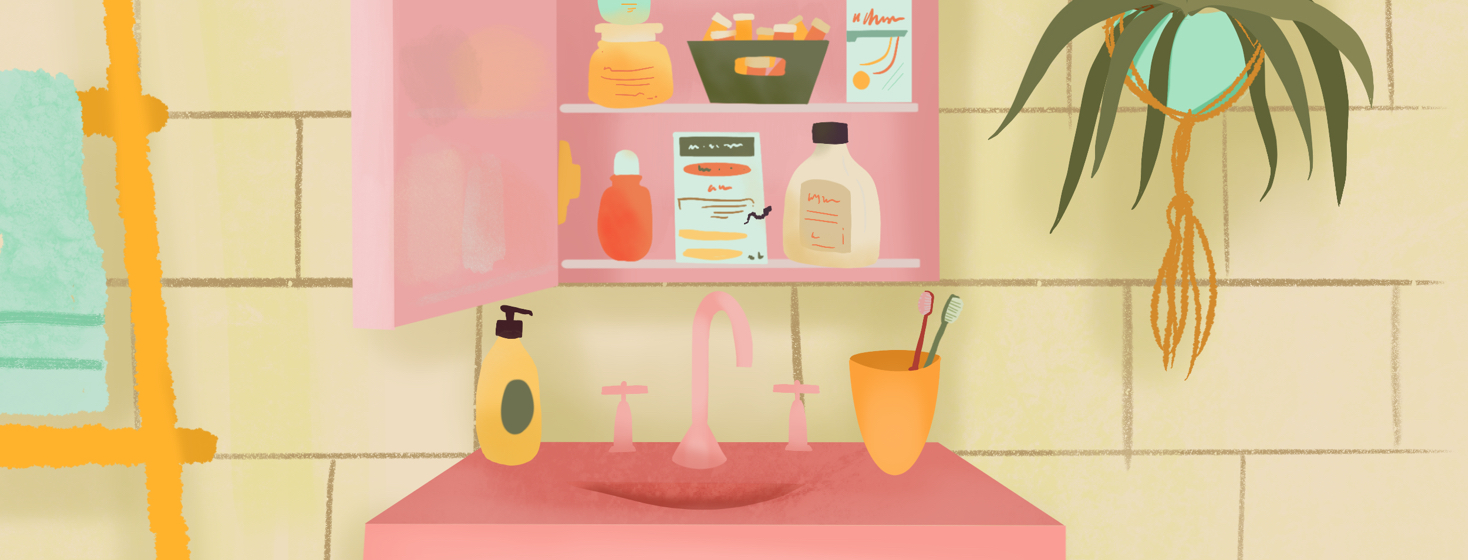Asthma Trigger Investigation: What's Hiding In Your Bathroom?
Identifying and reducing your asthma triggers are important steps to managing your asthma. Along with the right medication, trigger reduction can go a long way in managing your symptoms. Our homes can be filled with triggers; some are easy to find, and others need a little more investigating. Here are a few common asthma triggers that may be hiding out in your bathroom, and tips to reduce them:
Mold
Mold occurs naturally and can be found in many places. It is both an allergen and an irritant, so even if you are not allergic to mold, it can still irritate your lungs. Mold is caused by water, so it’s important to keep your sink, shower, and bathtub as dry as possible. 2,3
Tips:
- When you shower or bathe, run the exhaust fan or open a window. This will reduce humidity and growing mold.
- Fix any caulking that is cracked or missing. Fix any leaks under the sink.
- Clean the shower or bathtub area at least once a week with a scent-free cleaner.
- At the first sign of mold, clean it immediately. Warm water, a mild detergent, or a cleaner with a sponge or scrub brush should remove the mold. Bleach is toxic and an asthma trigger, so try to avoid using it whenever possible.
- When hanging wet towels to dry, make sure they do not touch the wall. If they do, they can create mold. Wash towels in hot water after about three uses.
Steam and hot water
I love hot showers; however, the hot water and steam can make my asthma and eczema symptoms worse.
Tips:
- Take warm instead of how water showers. If you use hot water, make it quick.
- Run the exhaust fan, open a window, or keep the bathroom door open when showering.
The medicine cabinet
Yep – your medicine cabinet may be hiding asthma triggers. Pain relievers known as NSAIDs can trigger asthma. Aspirin-induced asthma is also called aspirin-exacerbated respiratory disease (AERD), or asthma triggered by aspirin.1
Tips:
- Talk with your doctor about which pain relievers are best for you to use, based on the type of asthma you have.
- Properly dispose of any medicines that may trigger your asthma or have expired.
Personal care products
Soaps, shampoos, body lotions, and other personal care products can all be asthma triggers. Their fragrance or scent may worsen symptoms, or their ingredients may trigger allergic reactions like eczema.
Tips:
- Use fragrance-free products. Always smell the product before buying it – even products that are listed as “fragrance-free” can have a scent that bothers you.
- Read the labels before buying new products. Make sure the ingredients are as pure as possible and contain the least amount of chemicals.
Cleaning products
Avoid using harsh chemicals like bleach and cleaners made specifically for the bathroom.
Tips:
- You can make a paste of baking soda and water with a brush to scrub the sink and shower.
- A combination of vinegar, distilled water, and a few drops of essential oils (if they don’t bother your asthma) is an effective all-purpose disinfectant.
- Unscented cleaning wipes or a mild detergent can also be good choices.
Cockroaches
Cockroaches can be found in the bathroom because they need water to survive.
Tips:
- Cockroaches can enter the home in boxes and paper bags. They eat the glue on both, so keep these items out of your home.
- Keep the sink, tub, and counter dry.
- Keep inhalers and spacers in closed containers or baggies and not on the countertop.
- Use gel baits or diatomaceous earth to kill roaches instead of chemical sprays.
What asthma triggers have you found in the bathroom?
It just takes a few easy steps to reduce asthma triggers in the bathroom. Please share your tips and tricks for managing asthma triggers in the bathroom in the comments below, or start a conversation about asthma triggers in our forums section by clicking the button below!

Join the conversation